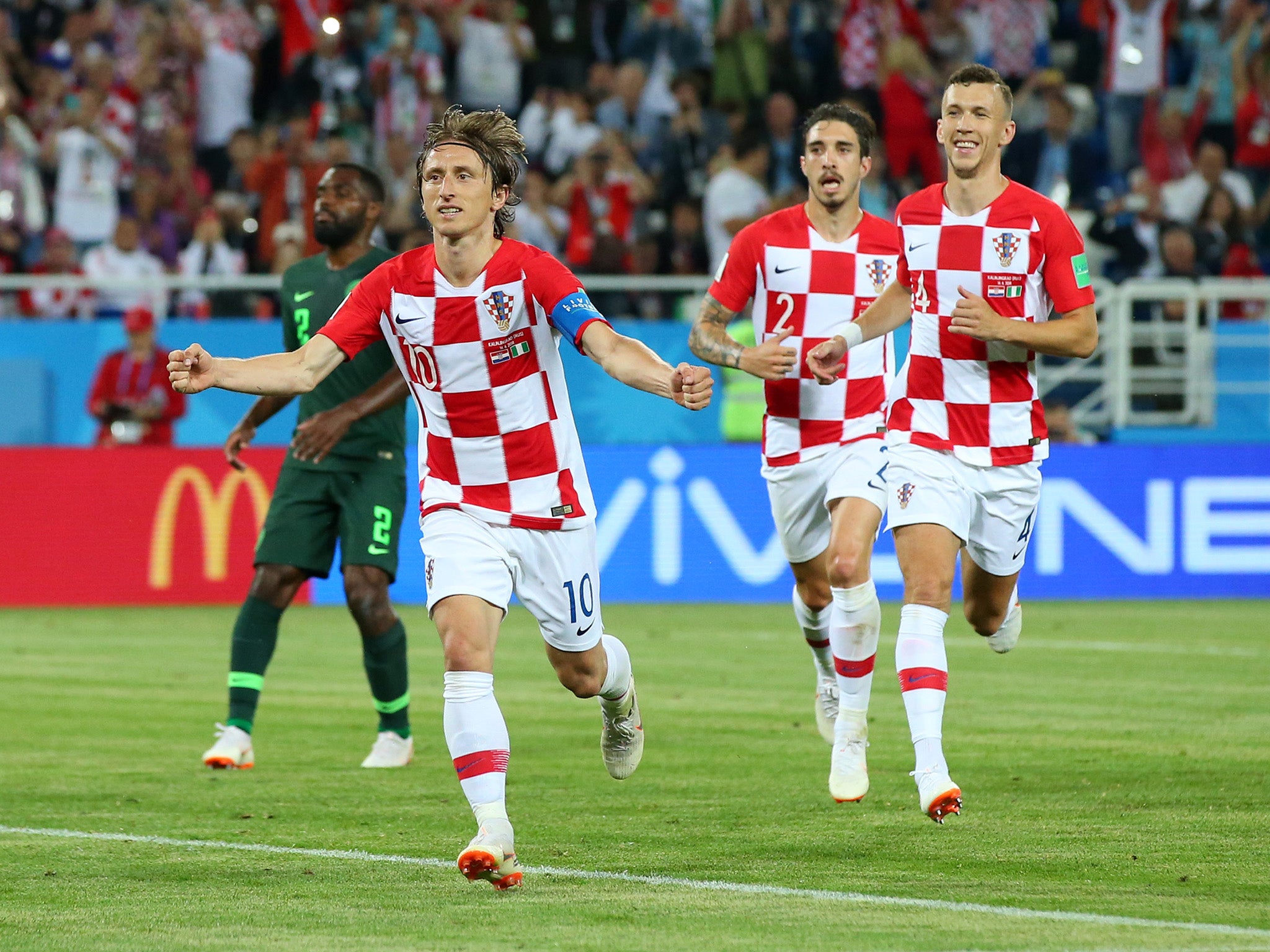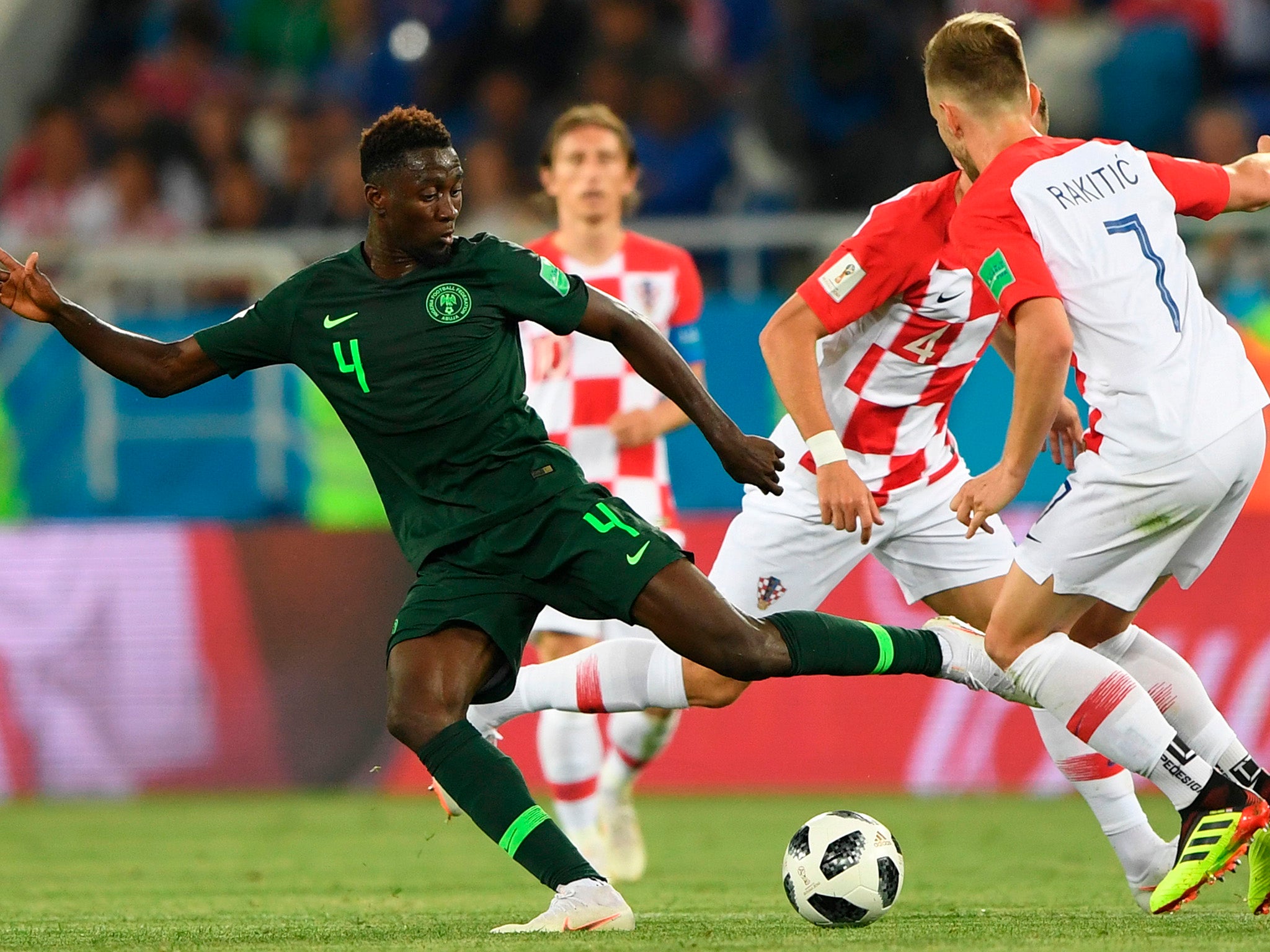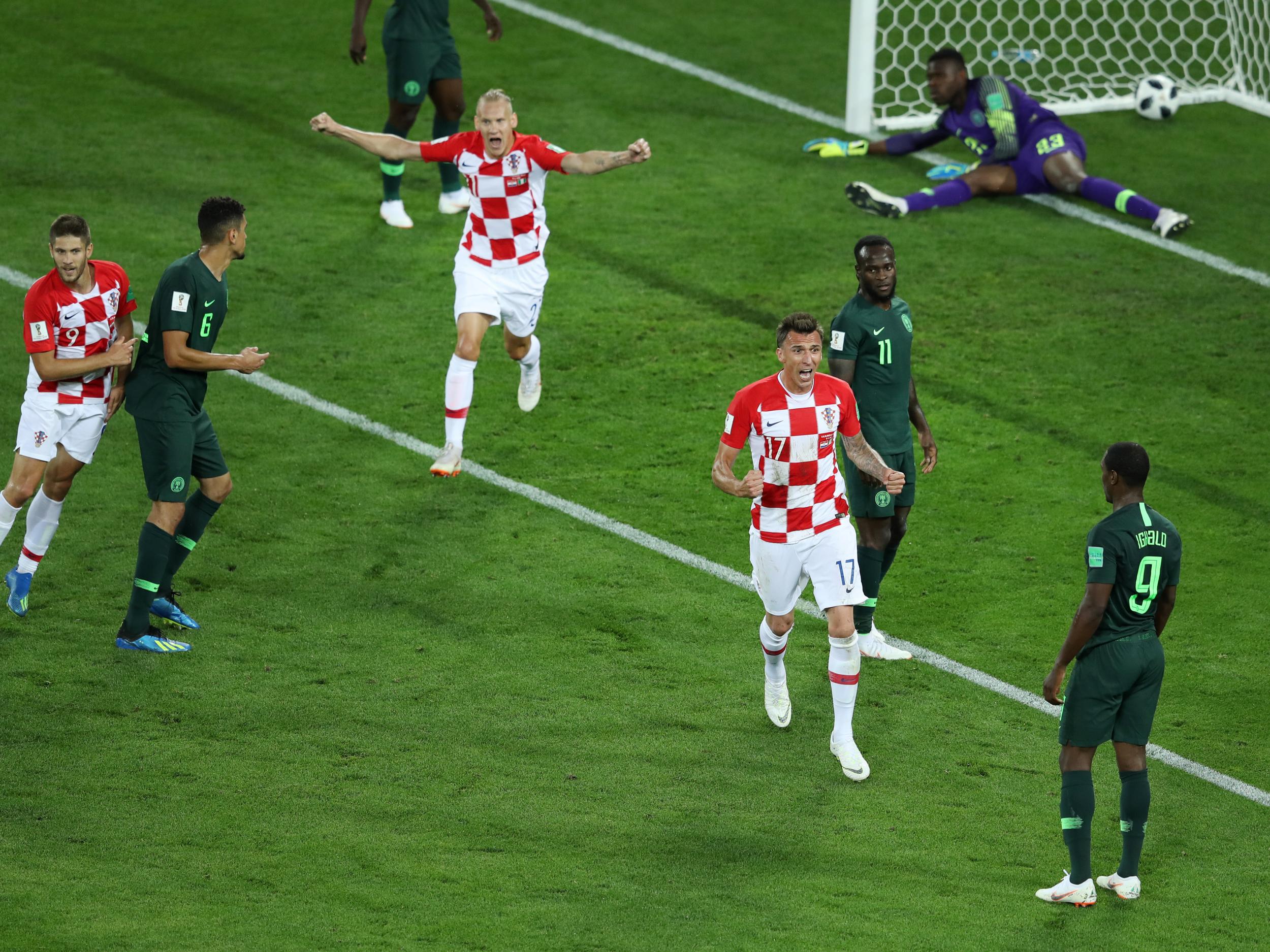Your support helps us to tell the story
From reproductive rights to climate change to Big Tech, The Independent is on the ground when the story is developing. Whether it's investigating the financials of Elon Musk's pro-Trump PAC or producing our latest documentary, 'The A Word', which shines a light on the American women fighting for reproductive rights, we know how important it is to parse out the facts from the messaging.
At such a critical moment in US history, we need reporters on the ground. Your donation allows us to keep sending journalists to speak to both sides of the story.
The Independent is trusted by Americans across the entire political spectrum. And unlike many other quality news outlets, we choose not to lock Americans out of our reporting and analysis with paywalls. We believe quality journalism should be available to everyone, paid for by those who can afford it.
Your support makes all the difference.They may be old dark horses now but Croatia have cleared the first hurdle with something to spare. It was a victory that lacked the flair of a Red Rum or a Desert Orchid but it was comfortable enough and, should they beat Argentina in Nizhny Novgorod on Thursday, Lionel Messi’s last World Cup may be a very short-lived affair. Iceland would fancy their chances against a Nigerian side that delivered very little.
Before the match, their captain, John Obi Mikel, had been asked about fulfilling the expectations of 180 million people, sat back in his chair and blew his cheeks out. The president of the Nigerian FA had predicted a semi-final. He is unlikely to need a hotel reservation.
This was a match that pitched age against youth and shortly after the half-hour mark, age was punching the air and wondering how to protect a one-goal lead.

Of the two sides, only two of Nigeria’s starting line-up – Mikel and Odion Ighalo, both of whom play in China – were not born in the 1990s. Only two members of the Croatian team they faced were younger than the country they represent.
Just before kick-off, the youngest of them all, Nigeria’s goalkeeper, Francis Uzoho, sank to his knees and flung his arms out wide. Whatever god the 19-year-old was praying to, he or she deserted him here.
Luka Modric had not started well. The Croatia captain had been bundled off the ball by his opposite number, Mikel, early on and his free-kicks and corners had been utterly indifferent.

This corner was rather better. Ante Rebic met it on the edge of the six-yard box, nodding it on towards Mario Mandzukic. His diving header was going wide. Andrej Kamaric swung at the ball but it fatally struck Oghenekaro Etebo’s calf and rolled, gently spinning, into Uzoho’s net.
Nigeria’s participation in the last World Cup had been ended by an own-goal from Joseph Yobo against France. It was Yobo’s 100th match and virtually his last touch as an international. He retired straight afterwards.
At 22, Etebo, who has become Gary Rowett’s first signing as Stoke manager, may have another decade in the game. He stood, hands on hips, while the camera lenses peered ever deeper into his face.
At the half-time whistle, Nigeria’s players formed a huddle in their own half that lasted so long you half imagined Phil Brown might step on to the pitch to deliver the team talk. Whatever their manager, Gernot Rohr, might have said, Nigeria looked busier, more aggressive after the interval but there was still that same defensive vulnerability that had plagued them when facing England at Wembley at the start of the month. A lovely cross from Ivan Perisic saw Kramaric slip his markers to be presented with a gaping chance from just in front of the penalty spot. It was blazed over.

With 20 minutes remaining the match was settled from the penalty spot. Perisic’s crosses, rather than Modric’s free-kicks, appeared the most likely route to the second Croatian goal that would kill this game.
So it proved. William Troost-Ekong’s method of dealing with a ball aimed at Mandzukic was to wrap his arms around the Juventus forward. The referee, Sandro Ricci, made the correct call and Modric stroked the penalty home and punched the air in front of the massed ranks of Croatian supporters who had filled Kaliningrad’s Victory Square and turned it into a mass of flags, songs and chants. Croatia were two up and had yet to have a shot on target from open play.
This was the first test of how this World Cup would deal with the issue of racism and Croatia would have been anxious about a small minority of their fans. They had begun their qualifying campaign playing behind closed doors as punishment for chemicals being used to draw swastikas on the pitch in Split before a game against Italy. Here, the passion was entirely related to football and the sweet taste of victory.

Join our commenting forum
Join thought-provoking conversations, follow other Independent readers and see their replies
Comments